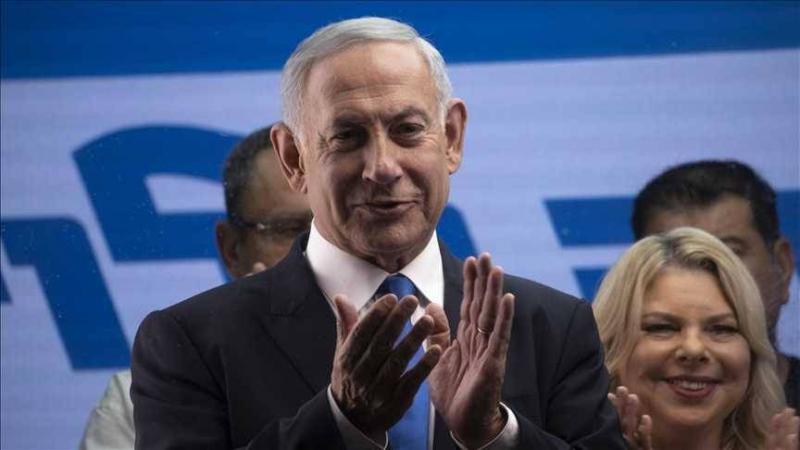The victory of Benjamin Netanyahu's bloc with 64 seats in the Knesset, which consists of 120 seats, has opened the doors for his political comeback through a record sixth term in power, relying on the control of four parties, foremost among them the "Religious Zionism" party and the "Jewish Power" party led by Itamar Ben Gvir. The unprecedented rise of the far right is one of the key factors that tipped the scales in favor of Netanyahu's bloc. Consultations with parties and coalitions will begin on November 9 to assign a figure to form the government, with Netanyahu being the closest for that position, and he will have 28 days to complete this task. If he fails, the timeframe may be extended by an additional 14 days. However, observers assert that Netanyahu had already started consultations even before the official results were announced.
What are the implications of Netanyahu's victory for Israel and the region? Retired Brigadier General Nizar Abdel Qader tells the "central" news outlet: "Netanyahu's rule during this period may be different and may not enjoy the same support he had before losing the position of Prime Minister in previous years, because today there is a Democratic administration that does not provide him with the same support and trust that former President Donald Trump offered him when he was in office. Therefore, the assertiveness previously displayed by Netanyahu as the leader of Israel cannot be interpreted in the same way now, as he does not have that same backing."
Abdel Qader indicates that "Netanyahu faces a very difficult task in forming a government, with at least 8 to 10 far-right parties committed to cooperating with him, which will make the Likud faction a central player among them. Thus, forming the government and appeasing the various unrealistic demands of all these small parties will be very challenging. This does not imply that he will fail in his mission, as Netanyahu, as everyone knows, will do everything within his power and make all possible concessions to the various factions in order to return and tell his political opponents who ruled during his absence, 'I return on a white horse and I am the master of the arena in Israeli politics.' This is his goal and nature in practicing politics."
But will Israeli policy change in the region? Abdel Qader responds: "In the past, Netanyahu attempted, with the help of Trump and his son-in-law Jared Kushner, to achieve more gains on the ground by taking away Palestinian rights, regionally and internally within Israel and Palestine on one side, while marketing Israel as a regional state capable of coexisting with many Arab regimes on the other side. This was evident in the Abraham Accords that Trump imposed on certain Arab states."
Abdel Qader argues that "all Israeli leaders pursue a policy of military escalation, whether in Syria, Gaza, or the West Bank. It has been apparent that the former Prime Minister Yair Lapid's repressive policies, which bear resemblance to the beginning of the uprising in the West Bank, were not different in brutality and methods, as well as in their application to all Palestinian cities and the Palestinian people, from what Netanyahu did."
Regarding the future of the maritime border agreement between Lebanon and Israel, Abdel Qader asserts that "the demarcation came more from American will than from Israeli desire, and even Lapid wanted to postpone this issue until after the elections, but American pressures imposed themselves because the United States may need or have a decisive desire to achieve this 'diplomatic accomplishment', fearing a power vacuum after the end of President Michel Aoun's term, which would leave no authority in Lebanon feeling self-assured to continue these negotiations in the subsequent period. This prompted President Joe Biden to personally intervene in the matter, supporting his envoy to the region, Amos Hochstein."
He adds: "In the end, the circumstances have changed from what we know about Netanyahu in previous governments. In the Arab issue, there are no favorable conditions after the Algiers summit, and the new wave of support that the Palestinian Authority and the Palestinian people received in revitalizing their cause indicates that the era is now for achieving remarkable accomplishments, both on the Palestinian and Arab levels, by Netanyahu."
Abdel Qader concludes: "Netanyahu will benefit from the maximum that Hezbollah's new situation provides, which amplifies the gains achieved for Israel through Security Council Resolution 1701, as Hezbollah has considered itself victorious and part of this settlement, and that the era of conflicts, tensions, and risk-taking has passed, which reassures Netanyahu concerning security issues, especially the northern border problem."




